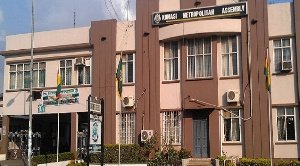FULL TEXT: Dr Opoku-Afari’s remarks at launch of Central Banking in Ghana memoir

The Bank accepted to be part of this book launch because primarily it focuses on the central banking in Ghana, the key roles played by successive Governors towards the achievement of the Bank’s objects and long-term sustainability, and ultimately the economic development of Ghana.
Mr. Chairman, Ladies and Gentlemen, let me commend the author, Mr. Ivor Agyeman-Duah, who has written extensively and contributed to several publications, and this time the focus is on the world of central banking in Ghana. The Bank is indeed supportive of the book’s publication due to its contribution to the literature on central banking in Ghana, with emphasis on monetary policy, and regulatory and supervisory operations of the Bank.
We do acknowledge that books and articles written on the Bank of Ghana hardly touch on the individual governors who have led the institution and the philosophies that underpinned their economic and the monetary policy decisions.
This book, however, does that and would therefore go a long way to fill the gap in the body of knowledge on the economic thinking of the various governors that have transitioned through the Bank.
So, on behalf of Governor Addison, let me therefore take this opportunity to express the Bank’s appreciation to the author for the vision and efforts put in to publish this book.
Undoubtedly, I believe this book will enhance public understanding on the workings of the central bank, particularly, the much-debated concept of the institutional operational independence and accountability of central banks.
Mr. Chairman, distinguished Ladies and Gentlemen, although my task here precludes the review of this book, a task which will be performed by another speaker shortly, permit me to share a few thoughts on the evolution of monetary policy formulation and strategies mentioned in the book.
I found the author’s exposition on the tools of monetary policy insightful, especially the direct control and inflation targeting, expansionary and contractionary monetary policy stance and contemporary monetary strategies. In all of these narratives, inflation targeting is deemed the most robust monetary policy formulation strategy that has impacted positively on the objectives of central banks, including the Bank of Ghana.
Even though this book could be deemed as a mirror that reflects the work of all governors of the Bank since its establishment, but like the mirror, the reflection on the work of any of the governors may invariably differ depending on the reader’s economic philosophy or ideology.
I am certain that the discussion on monetary policy and many other contents of the book will provide a good basis for constructive and intellectual public discourse on the author’s views and assertions. Similarly, I trust that the author, being a seasoned scholar and academic, will readily respond to any constructive critique and commentary that may arise from economists, academics and other reviewers of this book.
This notwithstanding, this book will serve as a useful resource for central bankers, academics and students of economics in and outside Ghana. So, I highly recommend Central Banking in Ghana and the Governors (Institutional Growth and Economic Development) to everyone.
On this note, Mr. Chairman, Distinguished Invited Guests, Ladies and Gentlemen, join me to congratulate the author, Mr. Ivor Agyeman-Duah for the successful publication and launch of the book.
Thank you very much for your attention
Source: Thepressradio.com|2023





